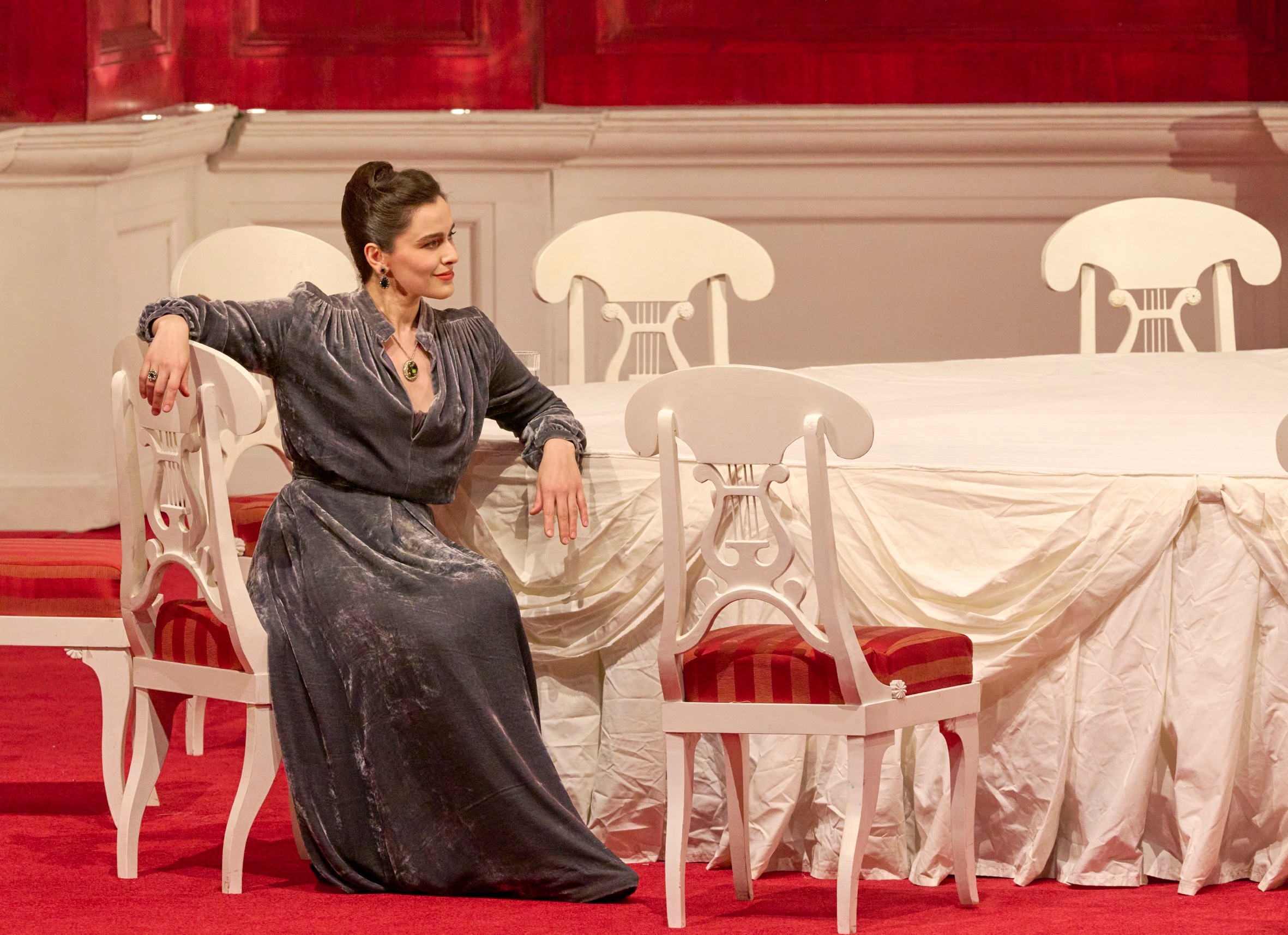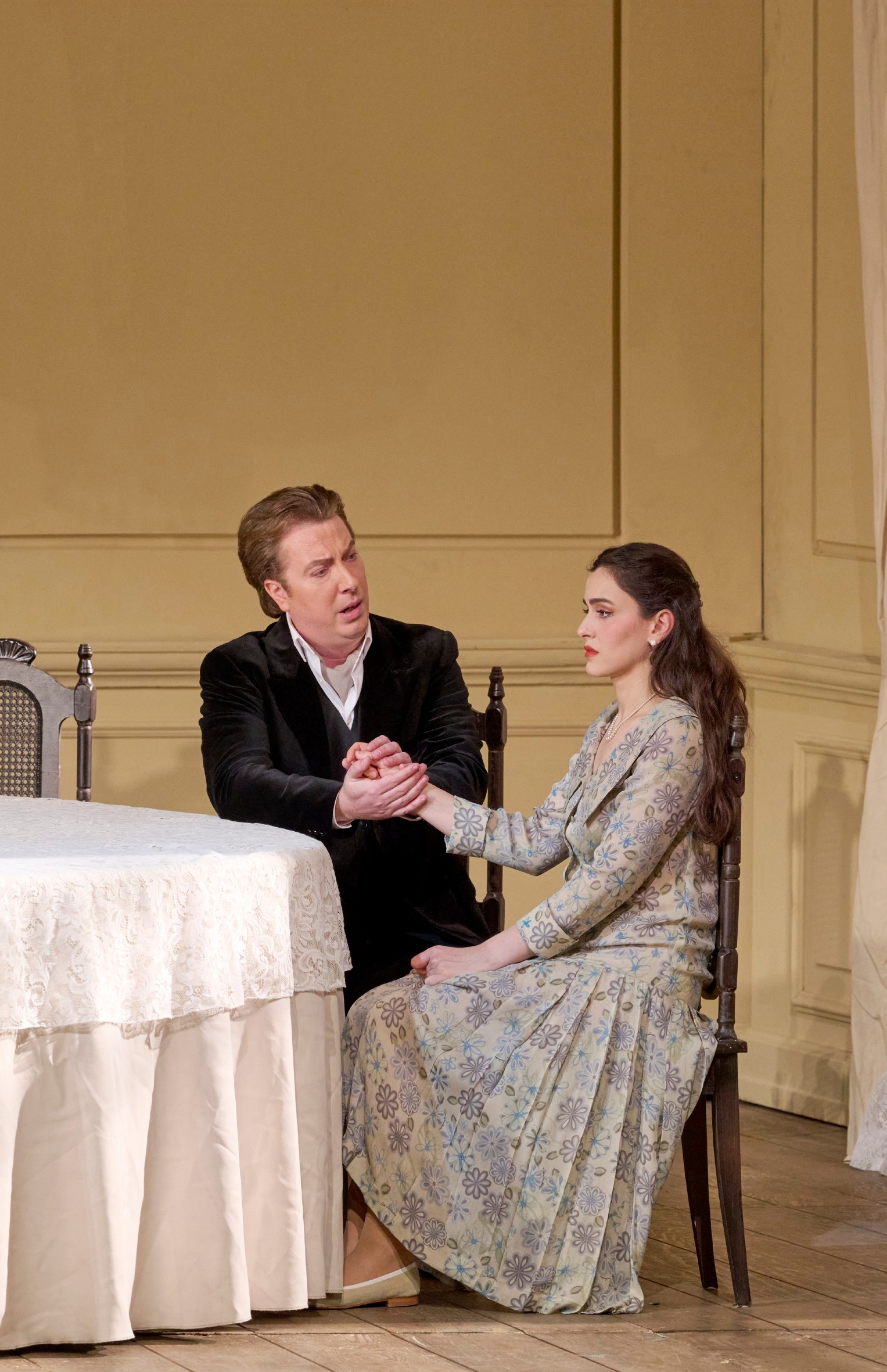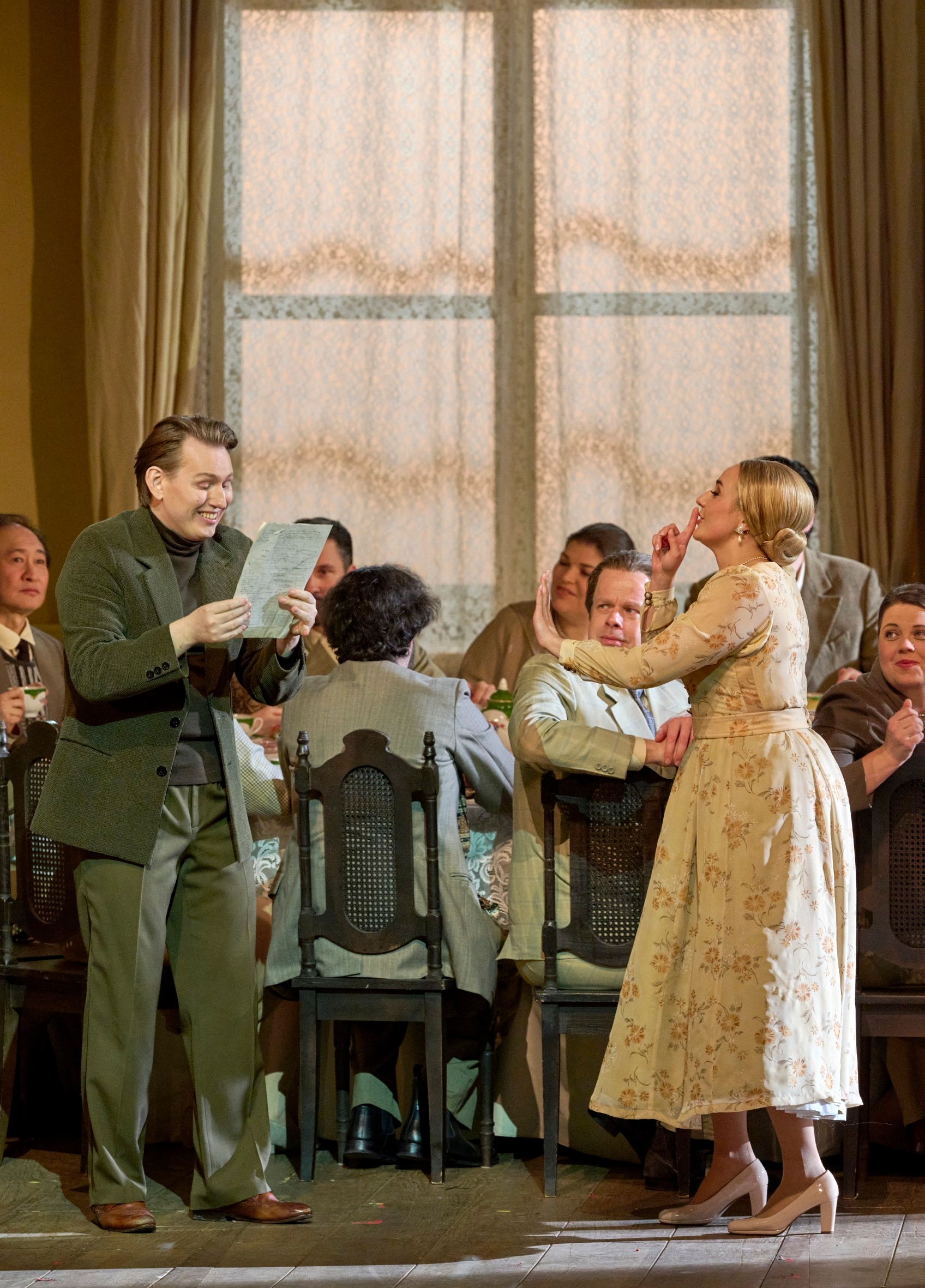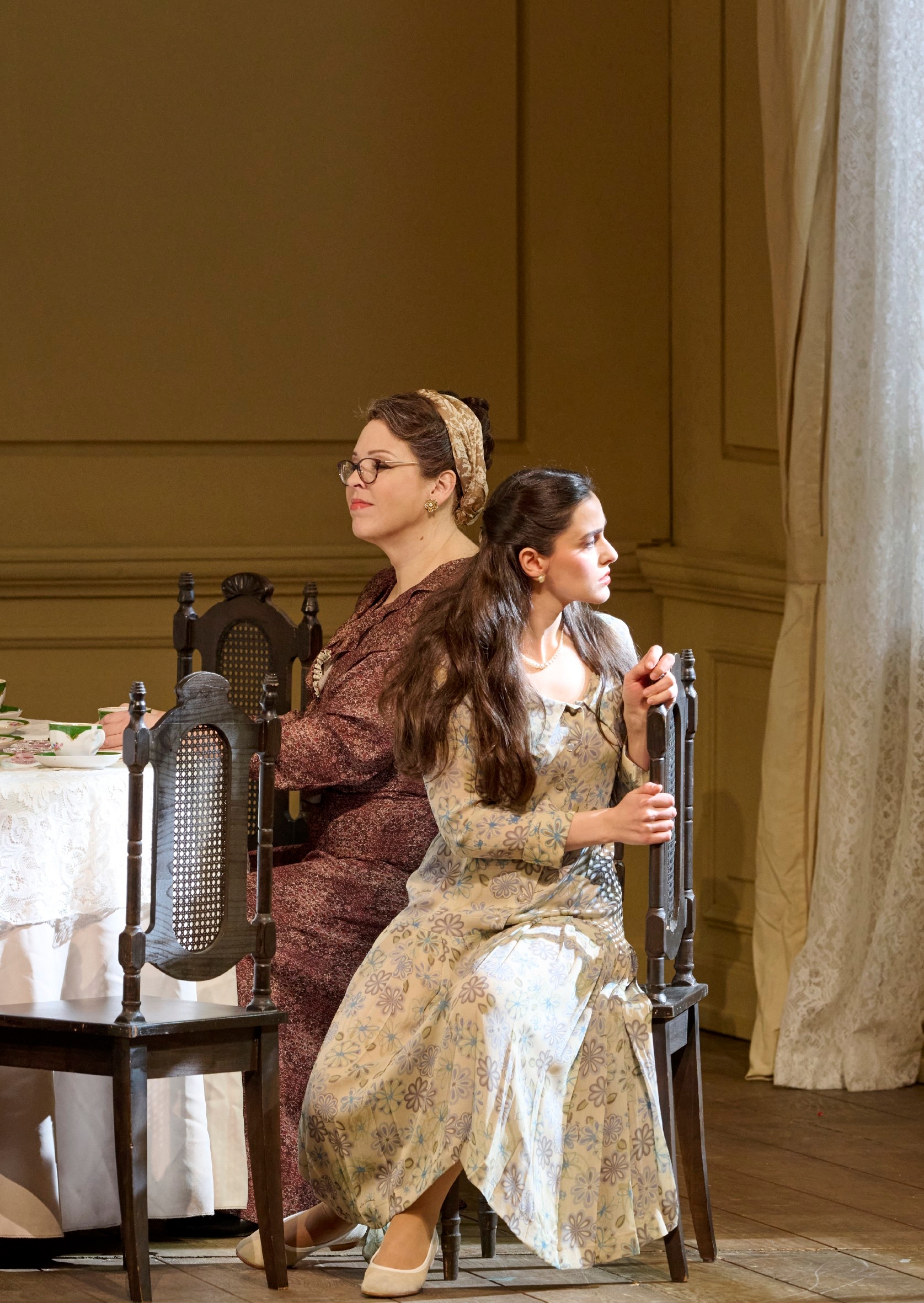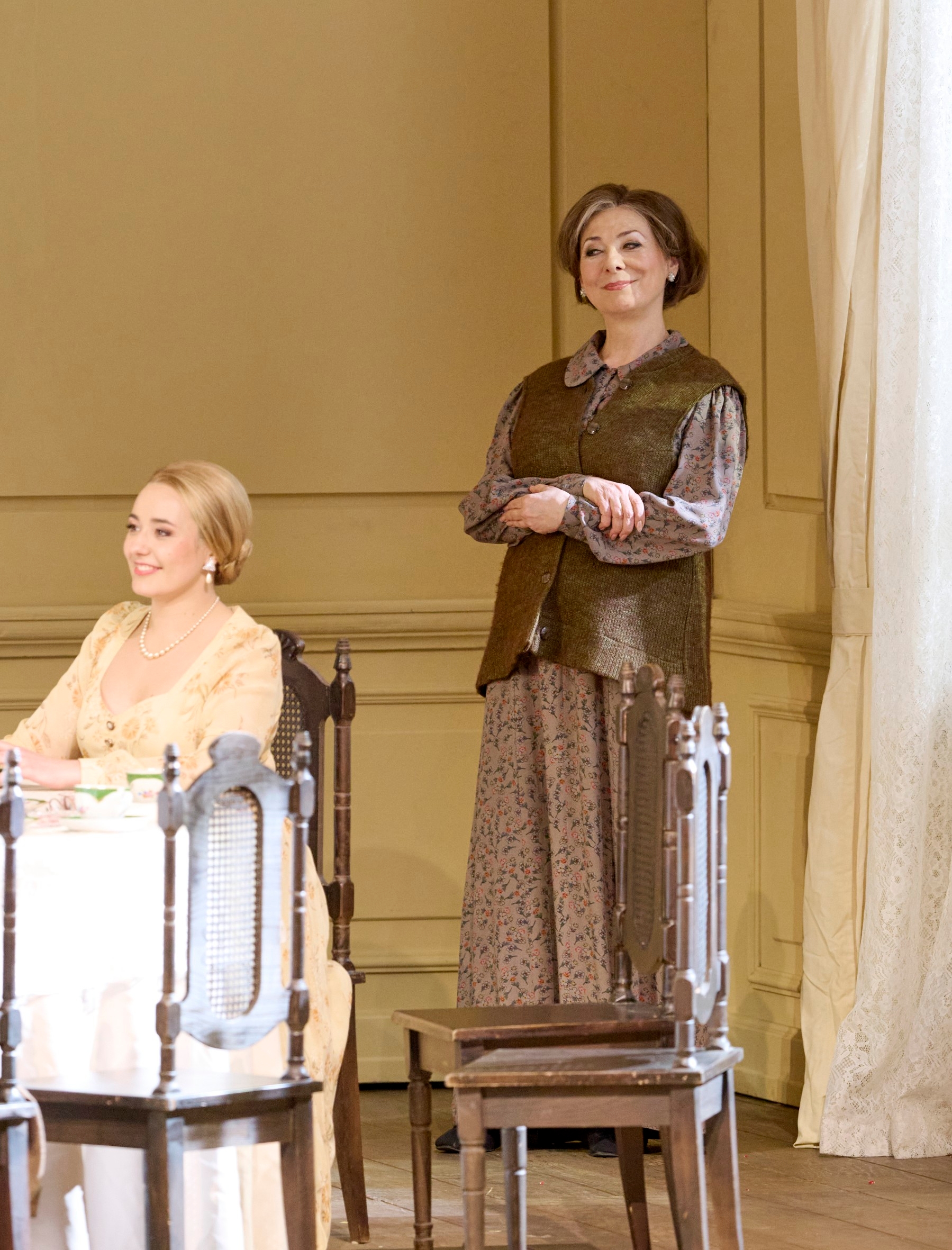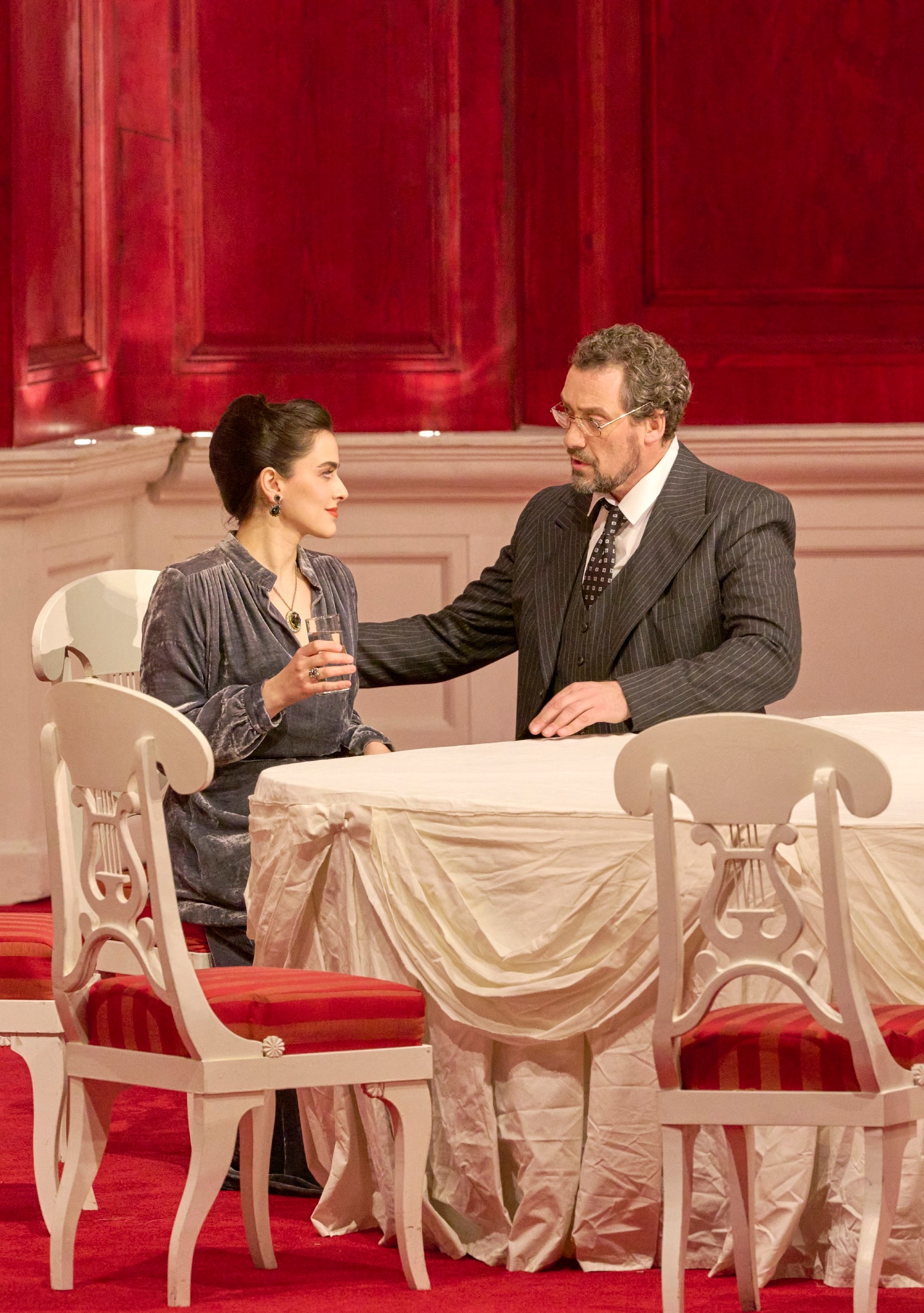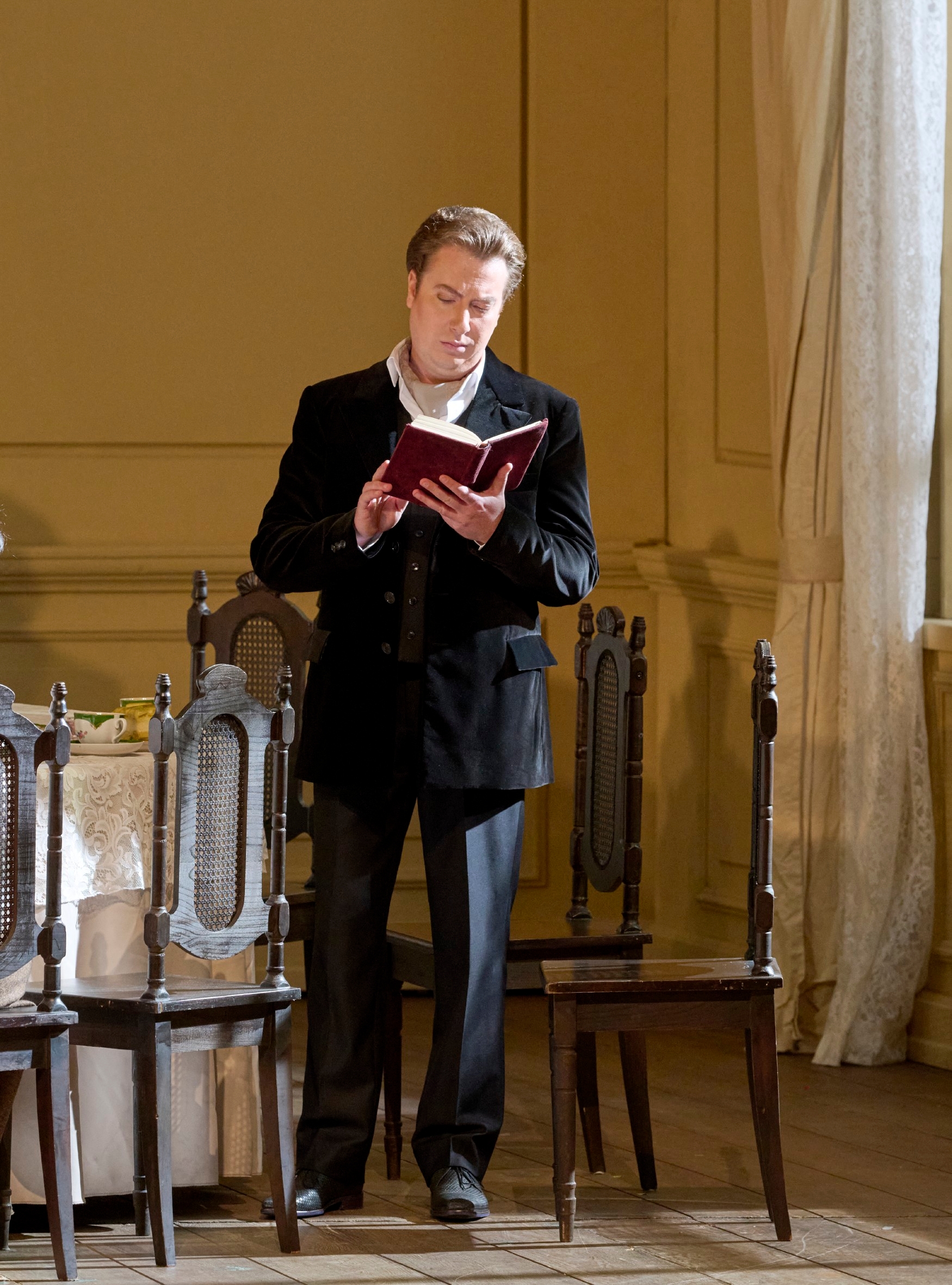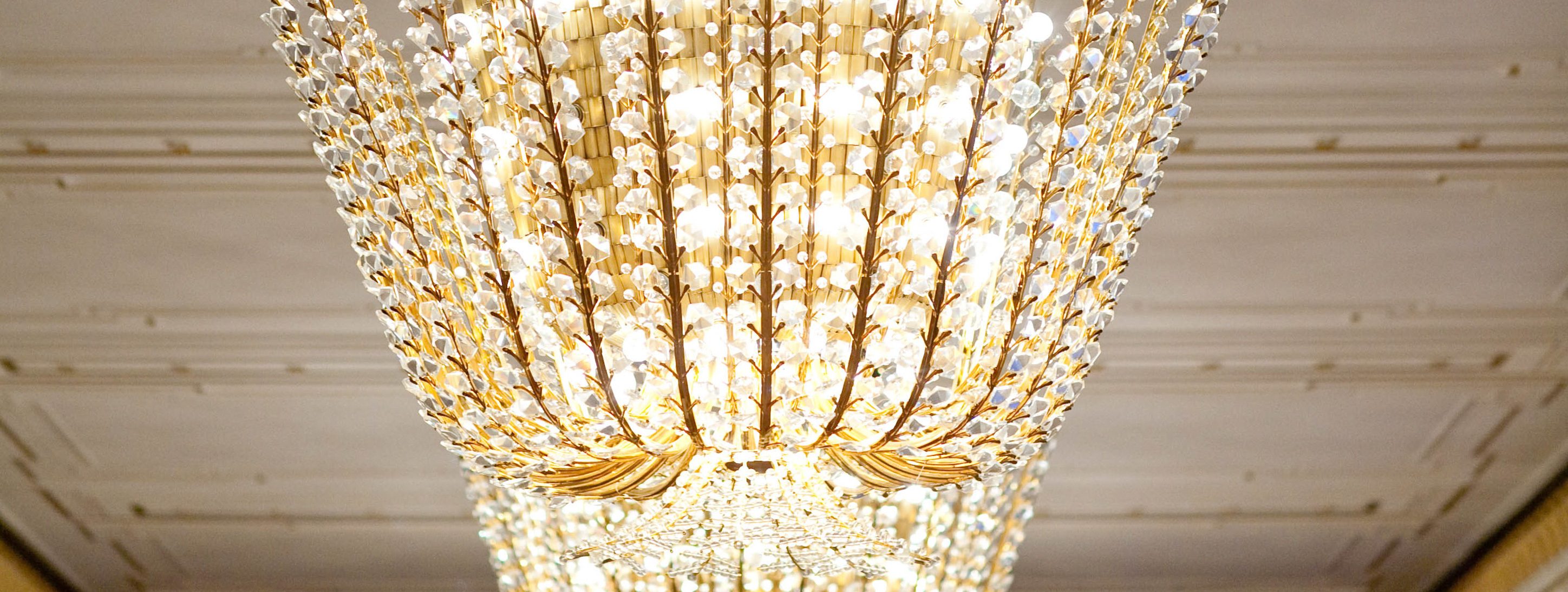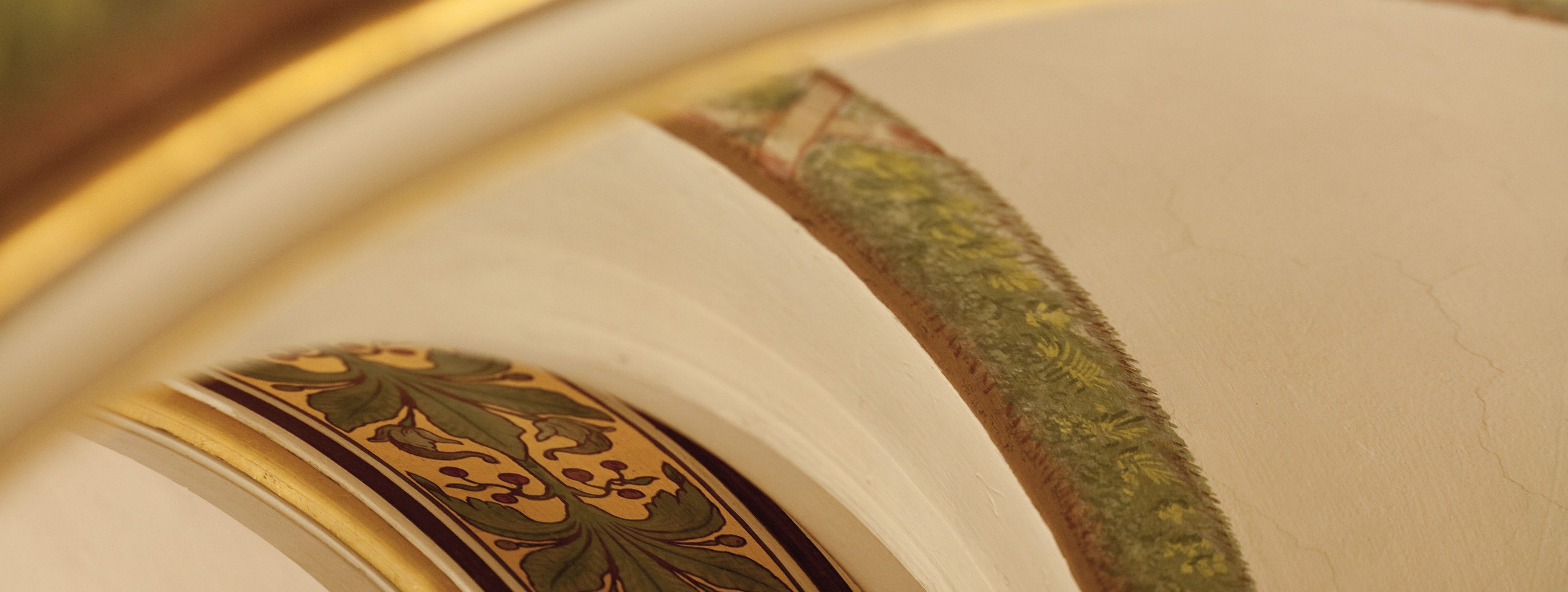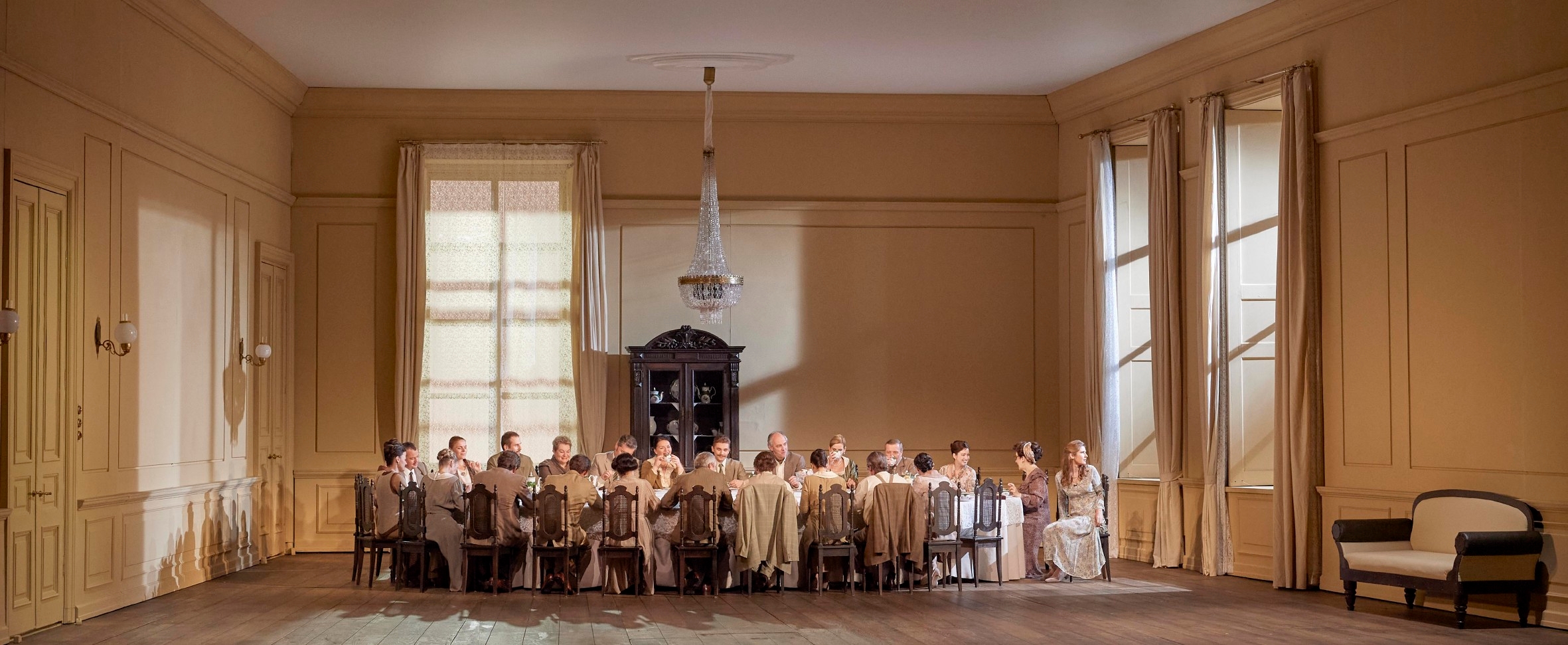
Short Summary
The introverted Tatyana falls in love with the suave Eugene Onegin and - against convention - dares to take the first step: she writes him a love letter.
However, he coolly rejects her. When her sister's fiancé dies at Onegin's hands on her name day, he flees society. Years later, the dandy meets Tatyana again, who is now married. Now he suddenly discovers his intense affection for her. Tatyana, however, remains faithful to her husband - Prince Gremin - and rejects the desperate Eugene Onegin, even though she loves him.
Eugen Onegin
Storyline
Scene 1: Mrs. Larina, her daughters Tatyana and Olga, the nurse Filipjevna, Vladimir Lenski, Eugene Onegin, neighbors, guests: In the Larins' house.
The neighbor Lenski, Olga's bridegroom, arrives accompanied by an unannounced new guest. His friend, the young Onegin, has recently arrived from the capital. The guest disrupts everyday life in the Larin household: no one can hide their interest in him. Onegin expresses doubts about his friend's choice of bride.
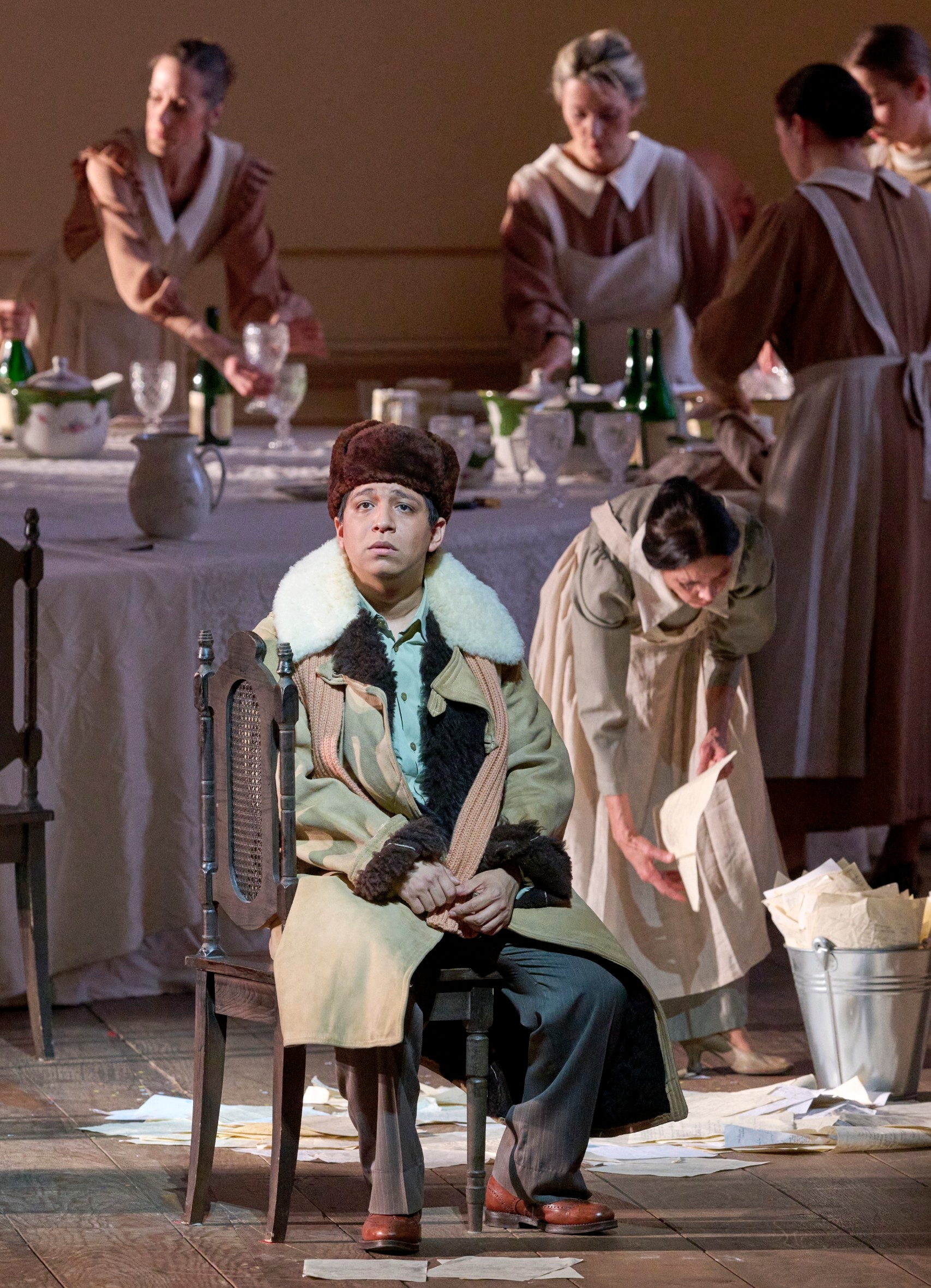
Scene 2: Tatjana, Filipjevna: Night. The encounter with Onegin has upset Tatyana. The nurse, sensing Tatyana's agitation, tries to distract and calm her. Left alone, Tatyana writes Onegin a letter. She sees him as her chosen one. At dawn, Tatyana asks her nurse to deliver the letter to Onegin.
Scene 3: Tatyana, Eugene Onegin: Day. Tatyana anxiously awaits the answer to her declaration of love. Onegin arrives. Tatyana's sincerity has touched him, but he cannot return her feelings.
Scene 4: Mrs. Larina, Tatyana, Olga, Vladimir Lensky, Eugene Onegin, Filipjevna, Saretsky, neighbors, guests: Tatyana's name day. Lenski has persuaded Onegin to pay the Larins another visit. But Onegin feels irritated by everything. He decides to hurt Lenski by demonstratively flirting with Olga. The readiness with which Olga responds to Onegin's advances torments Lenski. He starts a fight with Onegin and challenges him to a duel.
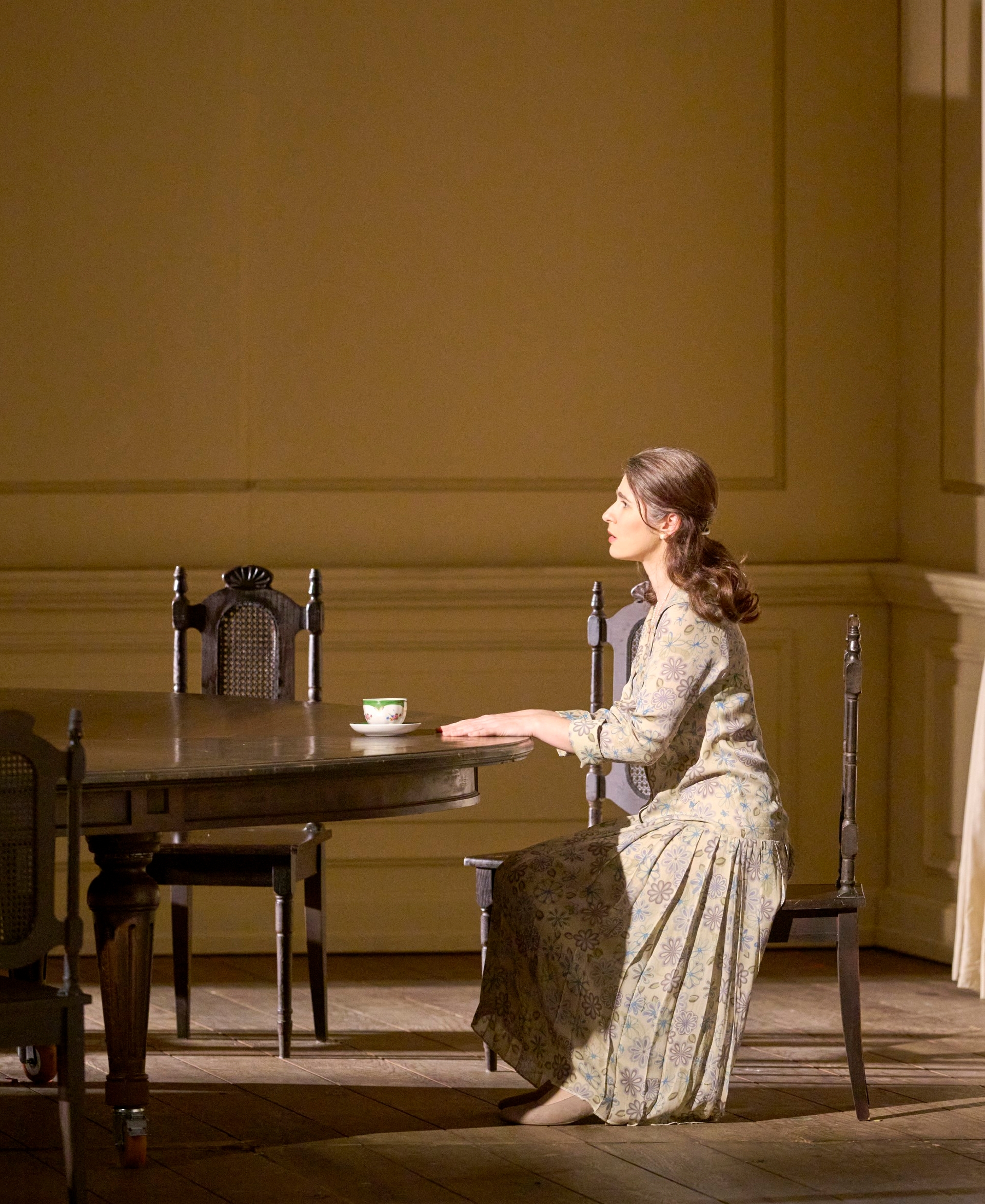
Scene 5: Vladimir Lenski, Eugene Onegin, Saretski, Olga, Mrs. Larina, Filipjevna, Guillot, neighbors, guests: Tomorrow. Lenski is expecting Onegin. He reflects on his life with melancholy and pain. Onegin, who is running late, wants to avert a further escalation. The former friends have the feeling that they have lost their way. But it is too late, a retraction is impossible. A shot is fired and Lenski collapses dead.
Scene 6: Eugene Onegin, Tatyana, Prince Gremin, guests: several years later. After a long absence, Onegin returns to life in the capital and meets Tatyana. She is married and is the center of social attention. Onegin is shocked by his rejection. Tatyana's transformation and her unattainability arouse a raging passion in Onegin.
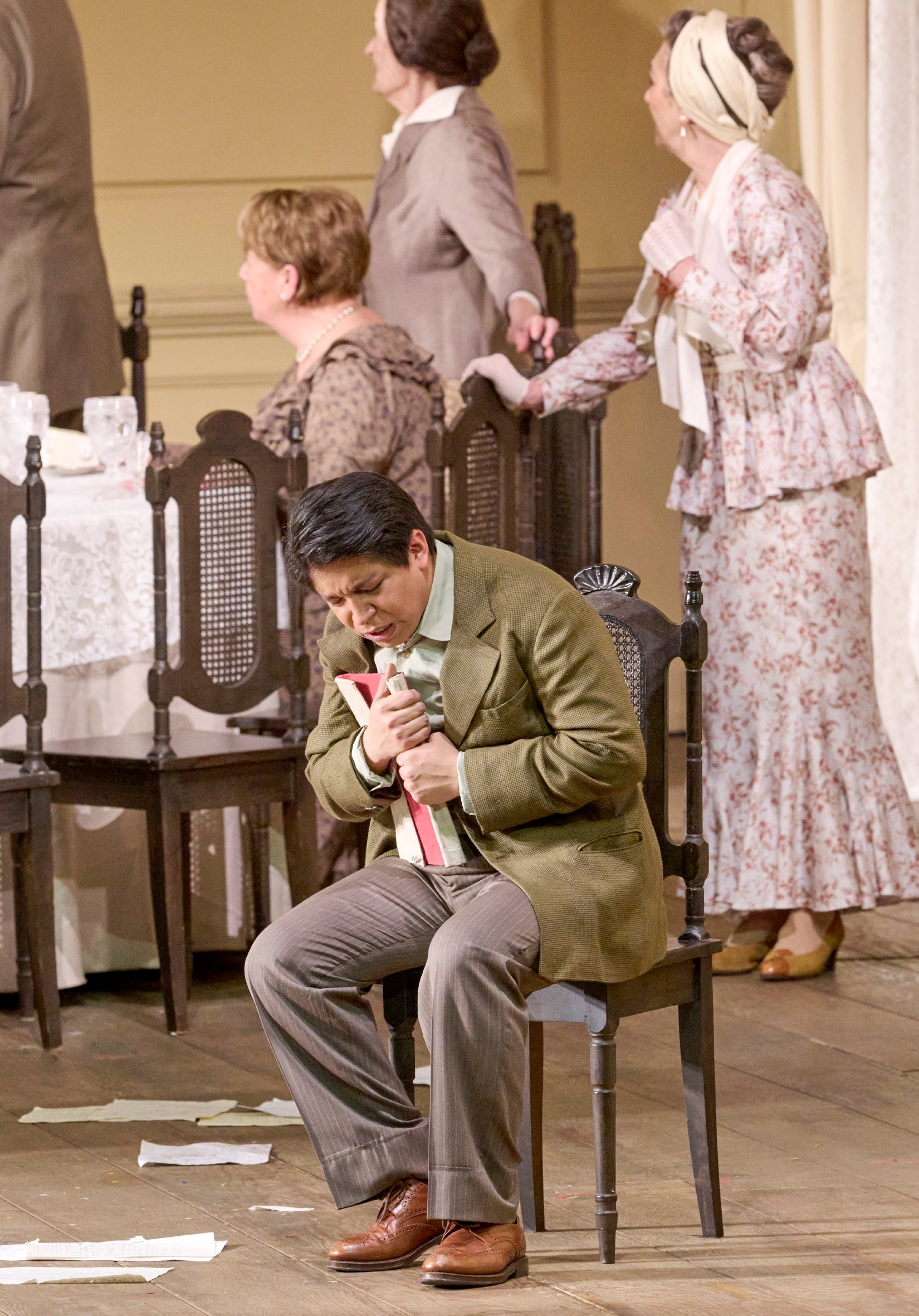
Scene 7: Tatyana, Eugene Onegin: Onegin succeeds in forcing a meeting with Tatyana. His words are tinged with remorse and regret. He demands a return of his passion and wrests from Tatyana the admission that she still loves him. But her decision to stay with her husband is irrevocable. Onegin despairs.
Piotr I. Tchaikovsky's Eugene Onegin tells of the false rhythm of love, of the seductive images we create of others and of the tension between passion and reason. Director Dmitri Tcherniakov has created a fascinatingly detailed production that captures the emotions of the heart just as seismographically as the mechanisms of society: here Tatyana, wandering in the depths of her soul, there the dandy-like Eugene Onegin, all around a community that is as diverse as it is deeply human. If you let your gaze wander in the large group scenes as well as the intimate moments, you constantly discover new small character studies that are precise and extremely lifelike. The central element of the production is a huge table in the middle of the stage, which is present in all scenes: its enormous size and span unites the company as they celebrate, but also separates the protagonists Tatjana and Eugen.
Eugene Onegin is the best-known and most internationally performed opera by Russian composer Piotr I. Tchaikovsky. For conductor Tomáš Hanus, who conducted the premiere of the current production, the musical keyword of this work is "intimacy". It is no wonder, says the conductor, "that Tchaikovsky chose 'Lyrical Scenes' rather than 'Opera' as the title of the work and thus gave us a clue as to how we should read this work: carefully, sensitively, with a precise eye." The fact that Tchaikovsky wanted to dispense with grand pomp is clear from the very first bars of the opera, which do not ring in the evening like a fanfare, but instead smoothly introduce the atmosphere of the first act. Another special feature is that Tchaikovsky used dynamic instructions in the score very sparingly. This gives the performers freedom that they would not find in the scores of Richard Strauss or Giacomo Puccini.
tchaikovsky was due to conduct the premiere in Hamburg in 1892 - but he canceled at short notice. A young, promising conductor stepped in: Gustav Mahler, then 1st Kapellmeister in Hamburg. tchaikovsky later called him "simply brilliant". Mahler, in turn, was so fascinated by the opera Eugene Onegin that some 15 years later, on November 19, 1897, he chose it as the first premiere of his official tenure as the newly appointed director of the Vienna Hopfoper. With tremendous success, by the way!
